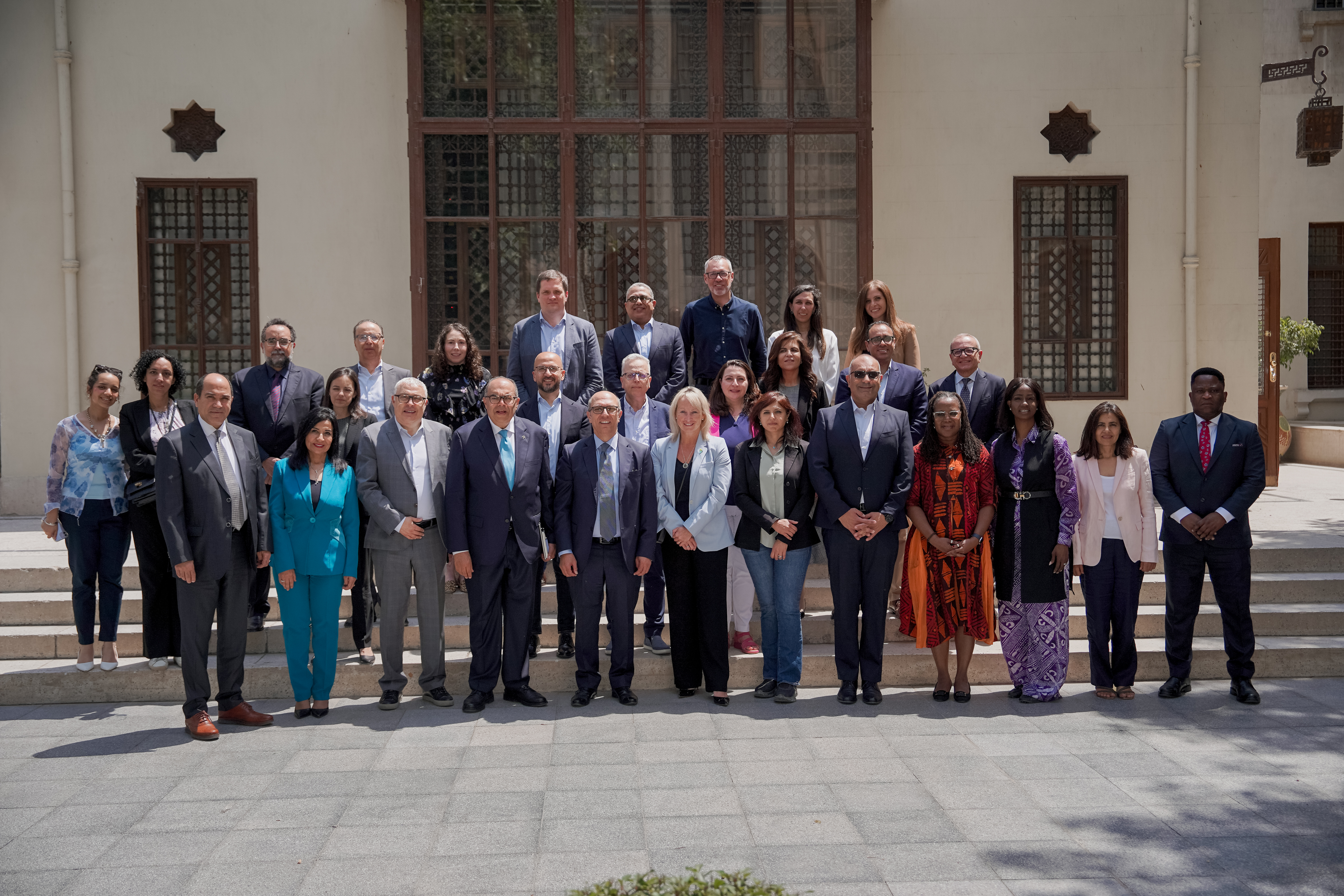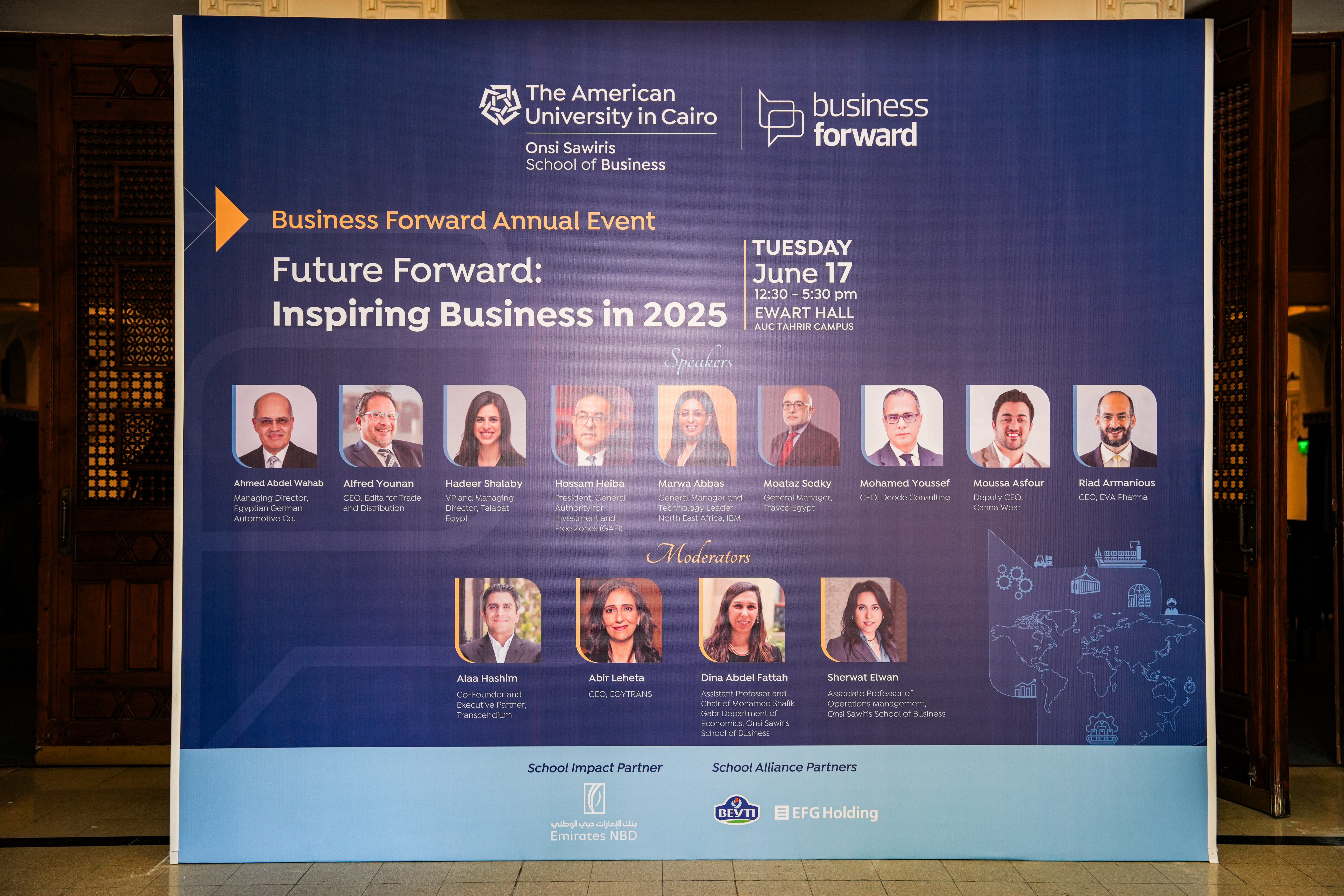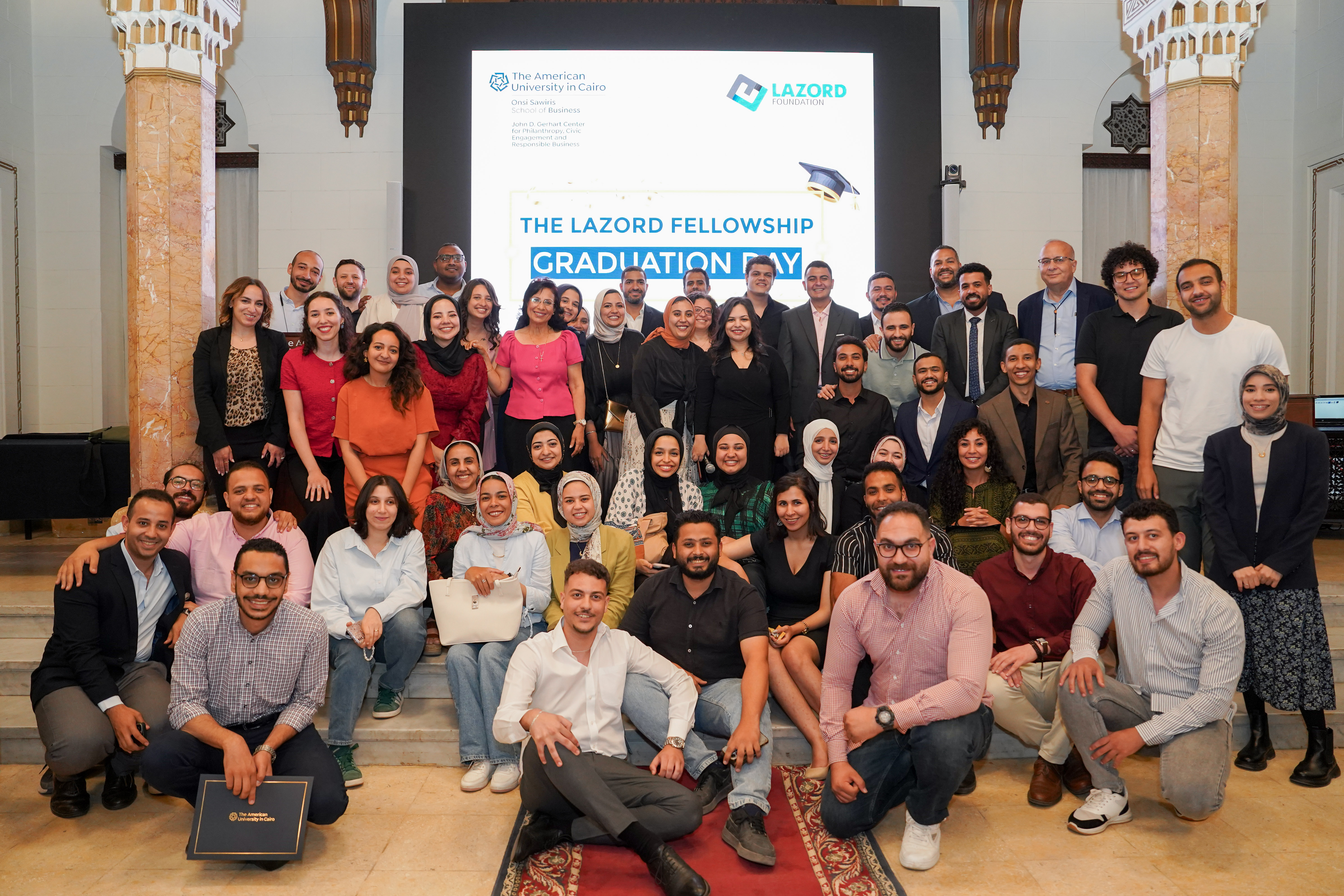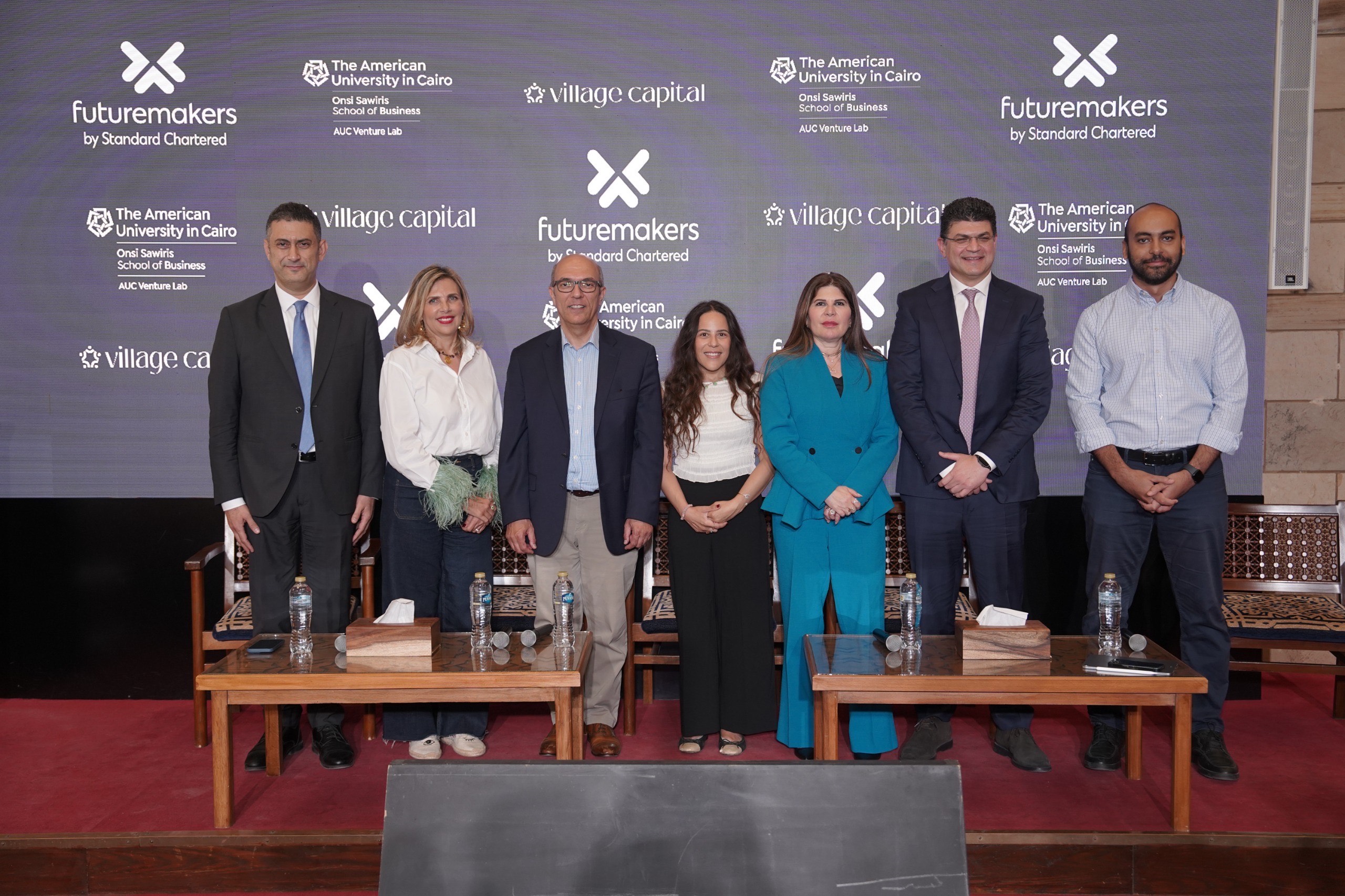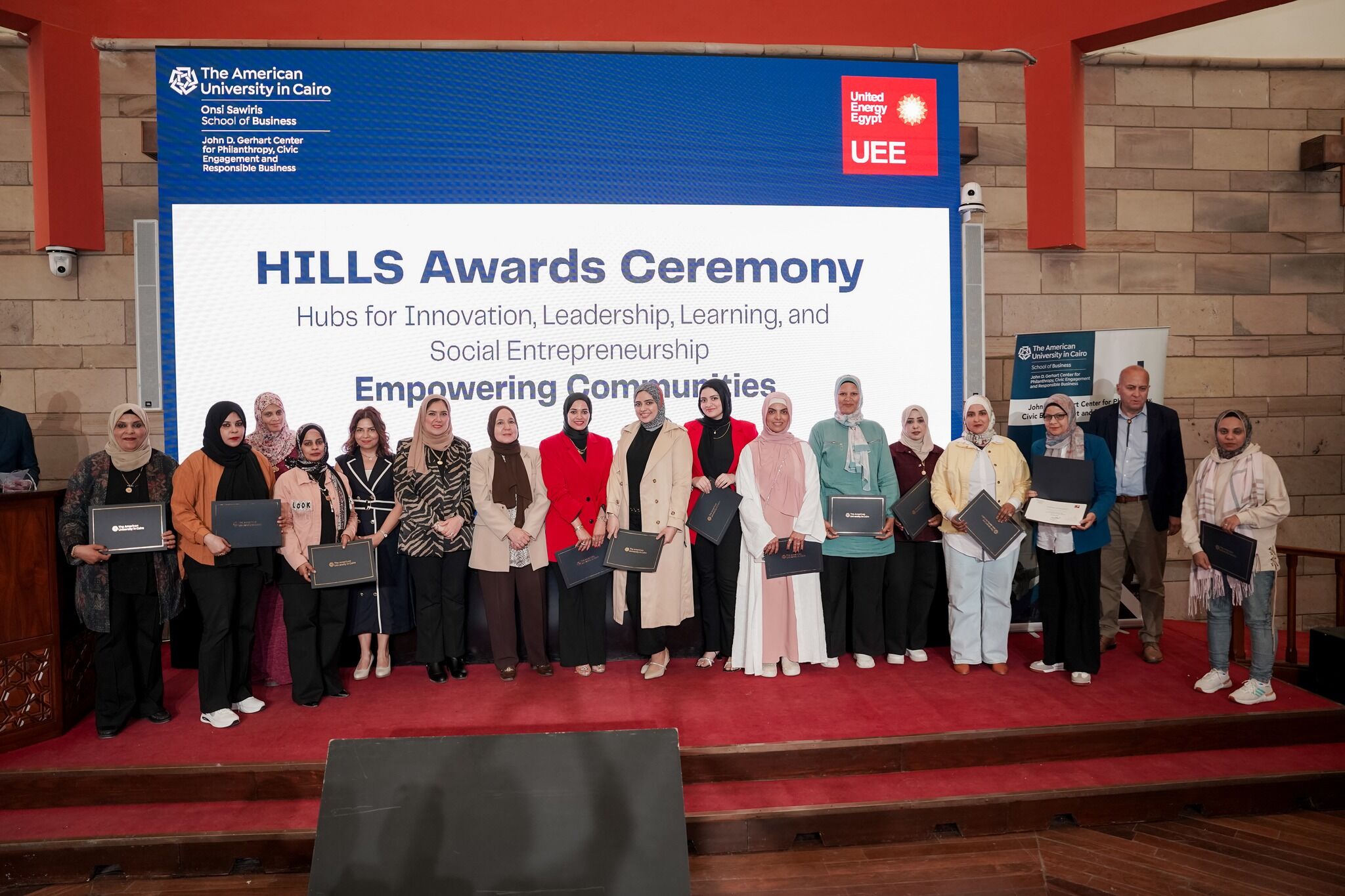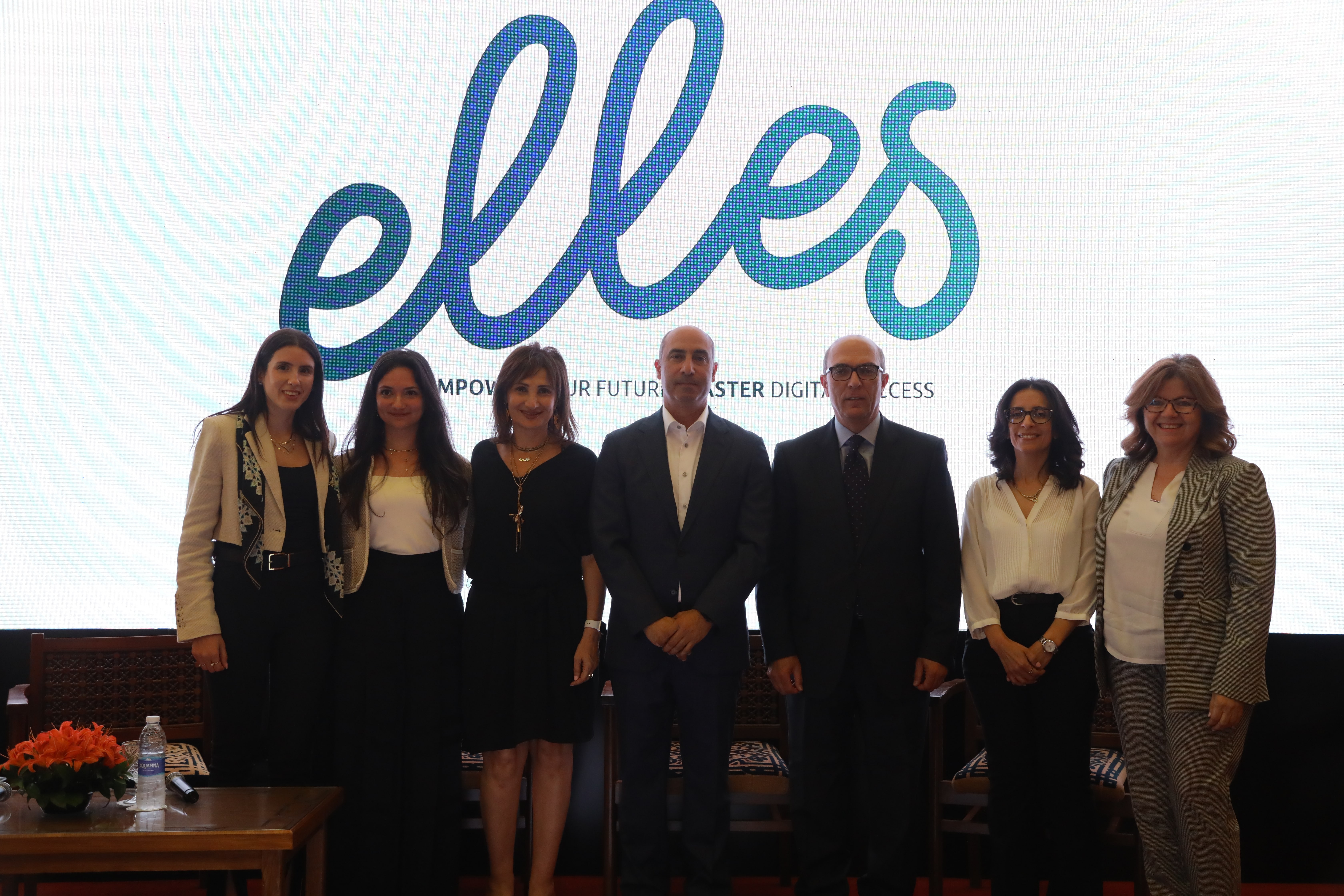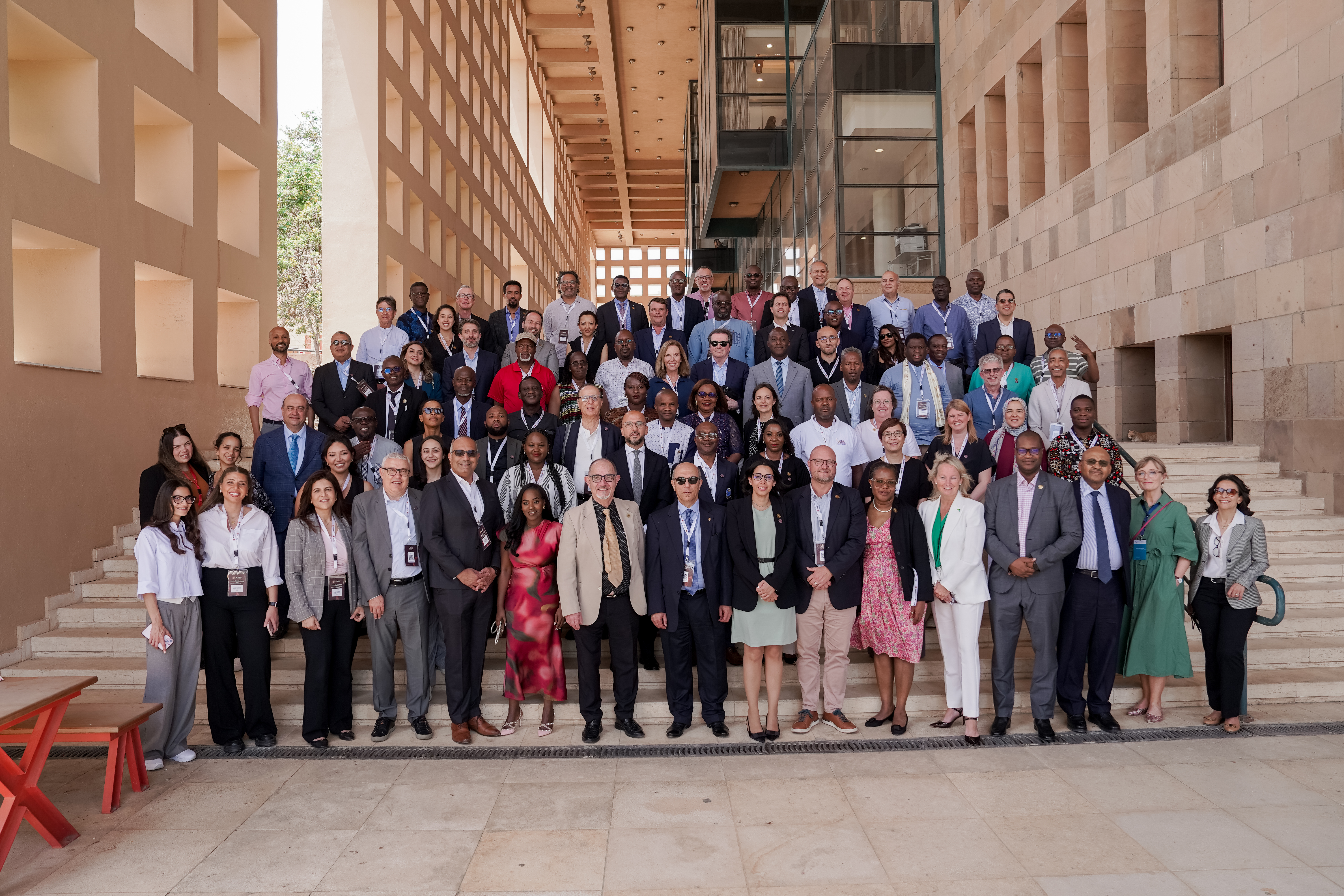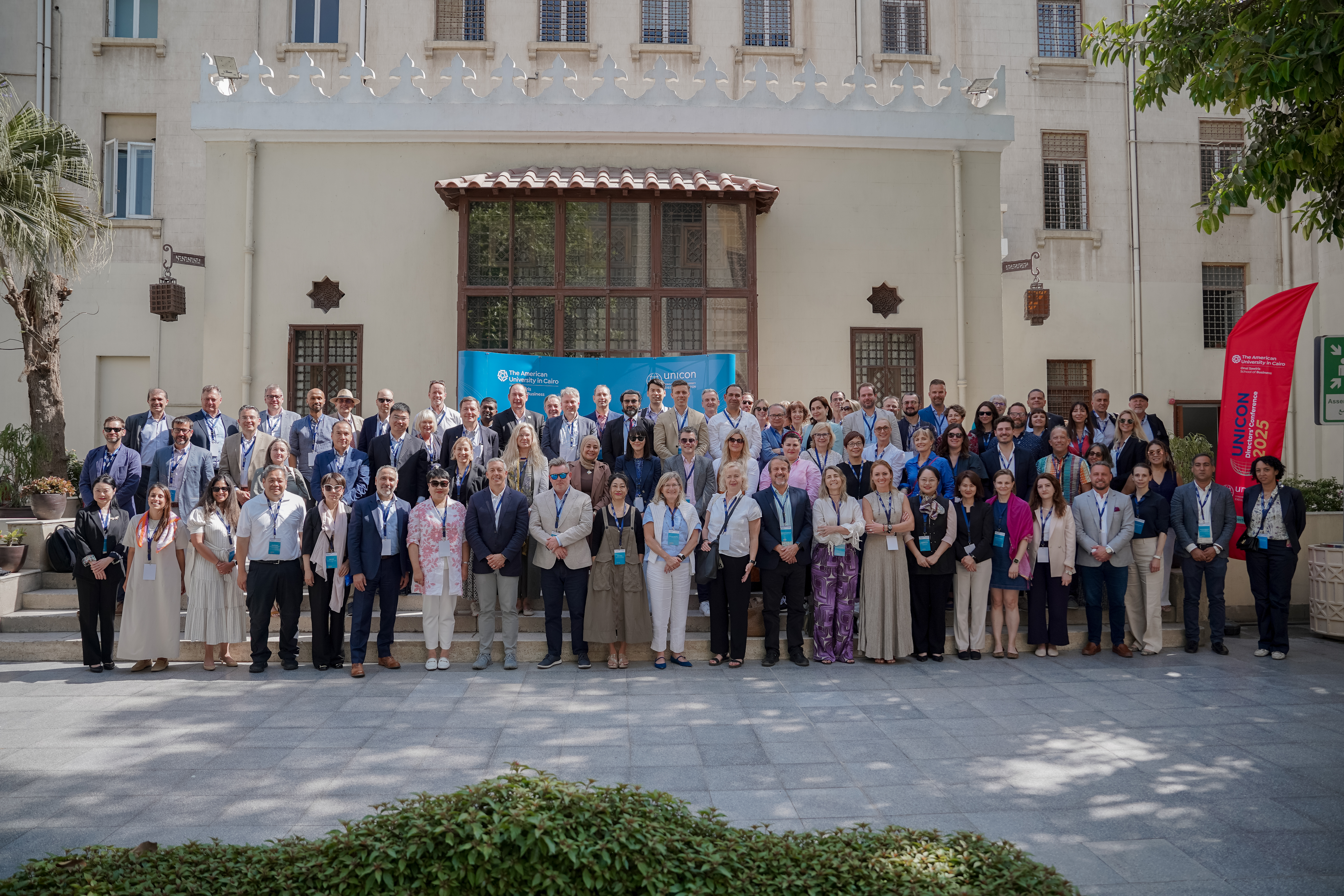Business Forward Annual Event 2025
Hosted by Business Forward, the knowledge portal of the Onsi Sawiris School of Business at The American University in Cairo, this year’s flagship event took place under the theme, Future Forward: Inspiring Business in 2025. The gathering embodied Business Forward’s mission to provide credible, insightful and forward-thinking analysis for decision-makers and the business community across Egypt and the wider Arab region.
Since its launch in 2017, Business Forward has served as a trusted hub for economic expertise. Its annual event, held consistently since 2018, has grown into a signature platform for high-impact exchange. This year’s program featured four dynamic sessions exploring innovation, industrial growth, export competitiveness, leadership, investment strategies and economic resilience.
What’s Next? Navigating Egypt’s Economic Landscape Amid Global Turbulence
The event opened with a compelling discussion titled What’s Next? Navigating Egypt’s Economic Landscape Amid Global Turbulence. The discussion featured Mohamed Youssef, CEO of Dcode Economic and Financial Consulting and was moderated by Dina Abdel Fattah, assistant professor of economics and chair of the Mohamed Shafik Gabr Department of Economics.
The conversation offered a comprehensive assessment of how Egypt is navigating an increasingly complex global environment. Youssef highlighted that the global economy is undergoing a structural transformation rather than a temporary period of disruption. Geopolitical tensions, protectionism and the decline of legacy economic models, such as the Washington Consensus, are redefining how countries must operate.
In this context, Egyptian firms, particularly in IT, tourism and outsourcing, are pivoting toward export-led growth strategies to mitigate currency challenges while leveraging Egypt’s comparative advantage in affordable, skilled labor. However, vulnerabilities persist. Regional conflicts, such as the Israel-Iran escalation, continue to impact energy security, supply chains and critical sectors such as tourism, manufacturing and agriculture. Industries reliant on CO₂ byproducts, such as fertilizers and beverages, are particularly at risk.
A major concern raised during the session was Egypt’s ongoing skills mismatch. Despite the country’s large youth population, many graduates lack job-ready skills. To address this, urgent investments in skilling and reskilling programs aligned with labor market demands are essential.
The session concluded with a call for reform rooted in local realities and implemented through inclusive collaboration. Speakers emphasized the need for evidence-based reforms shaped through dialogue between the government, the private sector, academia and civil society.
Visionary Leaders: The Future of Innovation and Resilience
The second session, Visionary Leaders: The Future of Innovation and Resilience, brought together top executives who are redefining leadership amid uncertainty. Moderated by Alaa Hashim, founder and executive partner at Transcendium, the panel featured Hadeer Shalaby, managing director of Talabat Egypt, Moataz Sedky, general manager of Travco Group and Marwa Abbas, general manager and technology leader for IBM North East Africa.
The panel highlighted a core insight: today’s leadership must be ambidextrous, managing short-term volatility while simultaneously building capacity for long-term innovation and growth. Agility, foresight and adaptability are no longer optional - they are essential.
A central point of discussion was the role of artificial intelligence (AI). Rather than replacing human workers, AI is transforming job roles and creating demand for entirely new skill sets. Companies like IBM and Talabat are integrating AI to streamline operations, improve customer experience and boost efficiency. However, realizing AI’s potential requires urgent workforce reskilling.
Panelists also highlighted shifting customer expectations. Shalaby emphasized that speed, personalization and reliability are now baseline consumer demands. Talabat’s success lies in its data-driven segmentation and responsiveness to evolving behavior patterns. Similarly, Sedky illustrated Travco’s transformation from a traditional tour operator into a fully integrated travel and hospitality group, illustrating how even legacy industries must digitize to remain relevant in today’s competitive and rapidly shifting market.
Finally, the panel stressed the importance of inclusive, locally driven innovation. Long-term resilience requires solutions that reflect local contexts and empower communities.
Industrial Growth: Opportunities for Local Growth and Global Outlook
The third panel, Industrial Growth: Opportunities for Local Growth and Global Outlook, explored Egypt’s manufacturing sector as a driver of national resilience and global competitiveness. Moderated by Sherwat Elwan Ibrahim, associate professor of operations management at the Onsi Sawiris School of Business, the discussion featured Ahmed Abdel Wahab, managing director of Egyptian German Automotive, Alfred Younan, CEO of Edita Food Industries, Riad Armanious, CEO of Eva Pharma and Moussa Asfour, deputy CEO of Carina Wear.
Panelists emphasized the need to shift from volume-based production to value-based manufacturing. This transformation requires stronger investment in research and development, innovation and technical and vocational education. Changing societal perceptions around industrial careers is also essential to unlock Egypt’s industrial potential.
The discussion also addressed the fragility of global supply chains, with panelists advocating for localizing supply chains through regional sourcing, logistics hubs and industrial clustering. Sustainability and digitalization were also highlighted as essential levers for competitiveness. From energy-efficient systems to smart manufacturing technologies, Egypt’s industrial sector must embrace new tools to boost competitiveness while meeting global environmental standards.
The panel concluded by emphasizing sector-specific policy interventions. Tailored support for industries like pharmaceuticals, food processing, textiles and automotive is critical for scaling up exports and achieving sustainable industrial growth.
Fireside Chat: Beyond Borders: Export, FDI and Logistics in a Shifting World
The event concluded with an exclusive fireside chat titled Beyond Borders: Export, FDI and Logistics in a Shifting World. The discussion featured Hossam Heiba, president of the General Authority for Investment and Free Zones (GAFI) and was moderated by Abir Leheta, CEO of Egytrans.
Heiba shared insights into Egypt’s strategic shift towards positioning itself as a global investment destination. Anchored in Egypt’s Vision 2030, the government aims to increase exports to $145 billion in exports, achieve 7% GDP growth and reduce unemployment to below 6%. Education and healthcare were identified as foundational pillars for long-term human capital development.
The conversation also addressed Egypt’s focus on eight strategic sectors, including the green economy, ICT, logistics and tourism. Heiba emphasized the importance of attracting sustainable, impactful and technology-driven foreign direct investment (FDI). While Gulf investment continues to play a vital role, Egypt is increasingly attracting interest from Europe, Asia and Latin America due to significant improvements in infrastructure and market accessibility.
Logistics and connectivity emerged as core enablers of competitiveness. Egypt is making substantial investments in ports and roads networks to position the Suez Canal Economic Zone as a global hub for logistics and light industry. These developments aim to boost Egypt’s share of global trade from 12.5% to 20%.
A significant takeaway from the discussion was GAFI’s transformation from a regulator to a facilitator. The private sector is being encouraged to take the lead in investment promotion, both domestically and internationally. Additionally, Egyptian companies are receiving support to expand abroad, building reciprocal relationships that reinforce Egypt’s standing in global markets.
Looking Ahead
The 2025 Business Forward Annual Event reaffirmed the power of informed dialogue in shaping Egypt’s economic future. Across every session, the message was clear: resilience in today’s world is built through vision, innovation, agility, adaptability and collaboration. Whether driving exports, transforming industries or enabling digital ecosystems, the future of business in Egypt will depend on our collective ability to anticipate change and lead through it.
Watch the highlights of the Business Forward Annual Event 2025
View photos of the Business Forward event here


